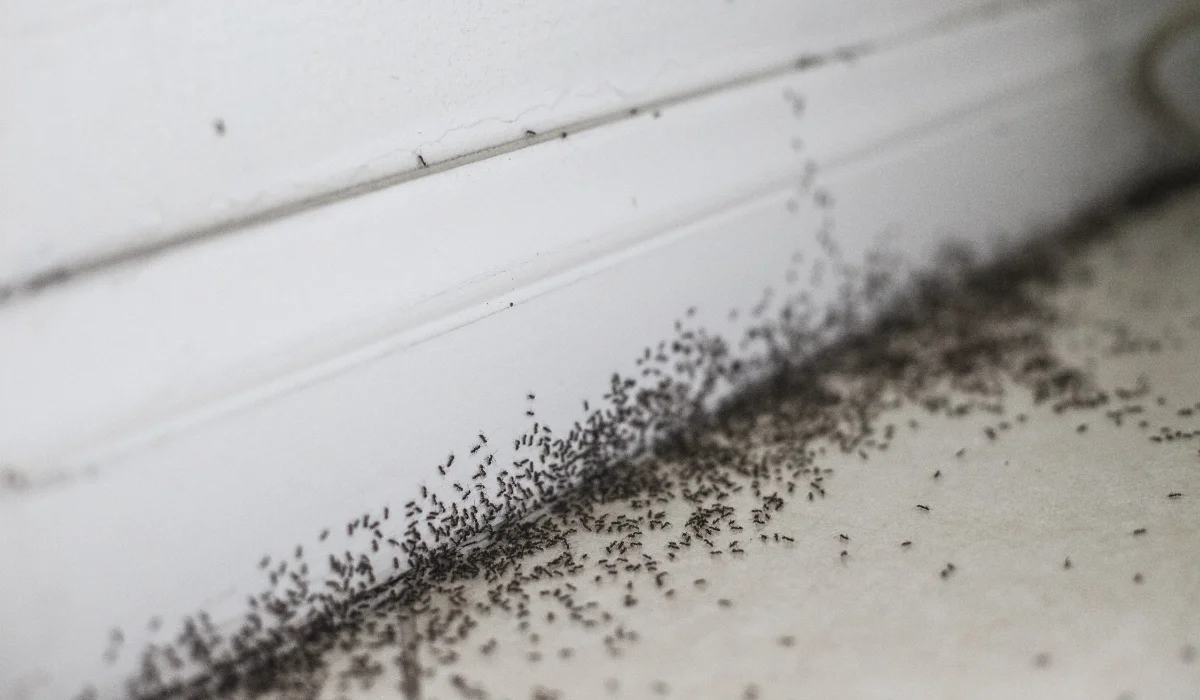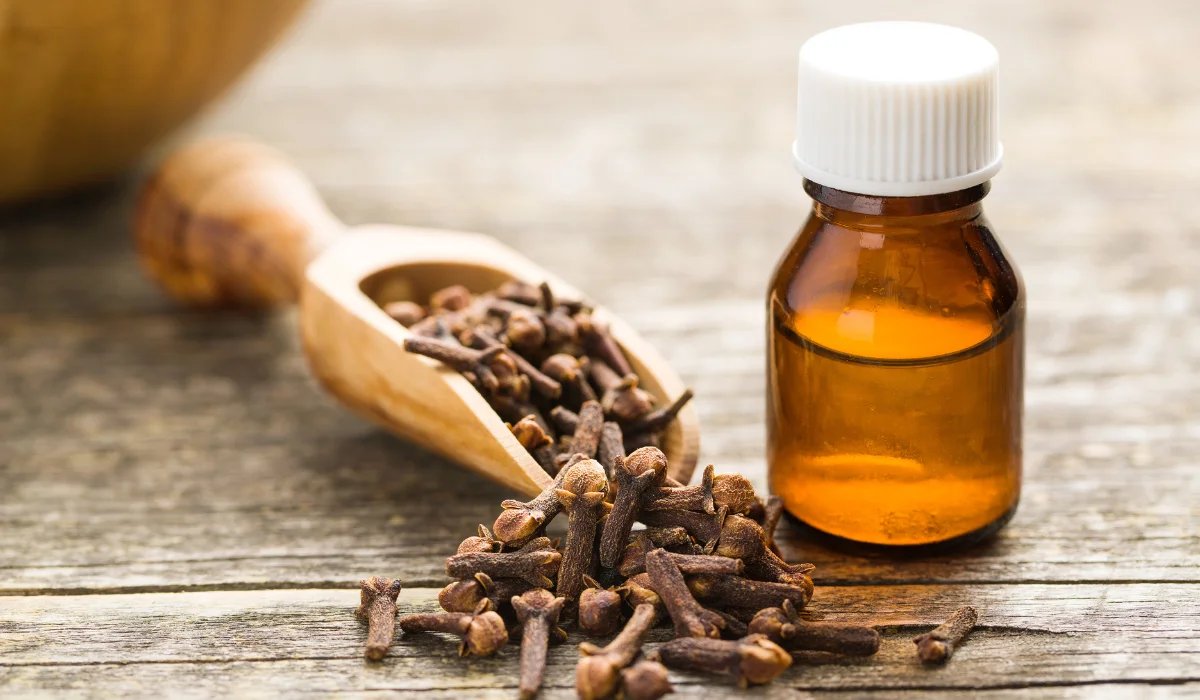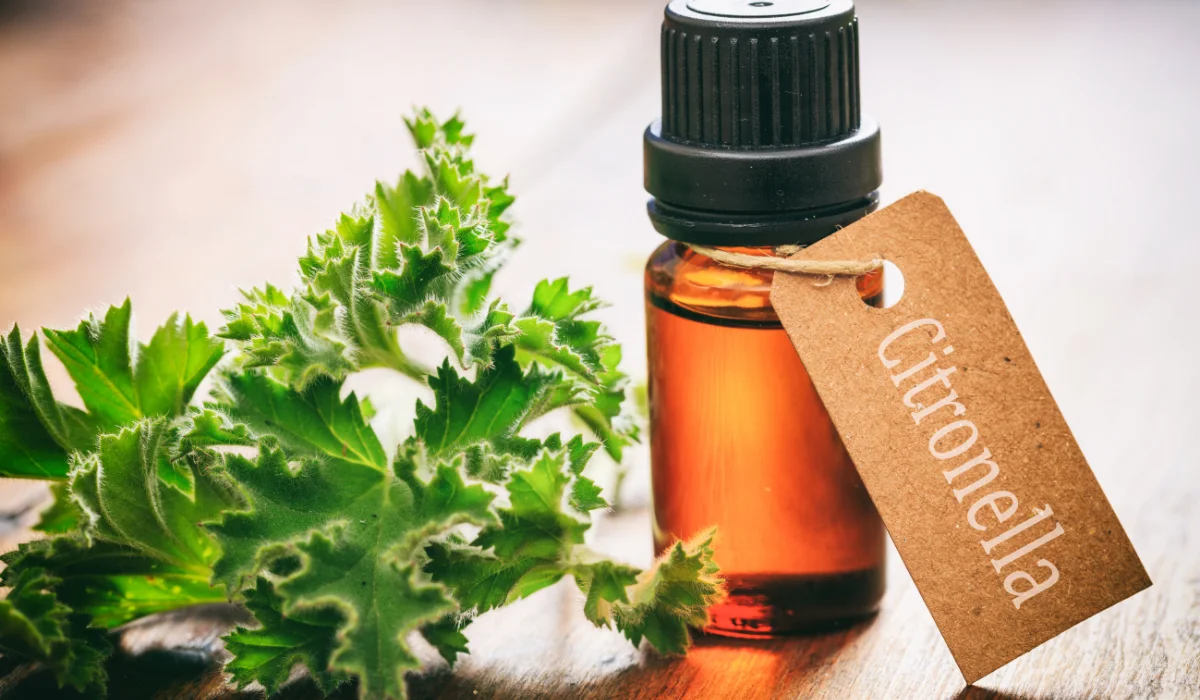
If you’ve spotted ants making a beeline across your kitchen counter or setting up shop around your pet food bowl, you’re not alone.
Many folks turn to essential oils as a non-toxic and natural way to fight back. While these fragrant oils might not kill ants outright, they can repel ants by masking the pheromone trails ants leave behind to guide their colony to food and water.
Let’s walk through some of the best essential oils used to get rid of ants, how they may work, and what to expect when using them. Keep in mind, these are short-term solutions.
For true ant control, you’ll likely need to go beyond the diffuser. Essential oils can help, but they won’t stop a full infestation. You’ll need other control methods too.
Key Takeaways
• Essential oils like peppermint and tea tree might repel ants briefly, but will not fix an ant infestation.
• Each oil has a strong scent that helps disrupt ant trails, but regular reapplication is always needed.
• Real results come from sealing cracks, removing food sources, using bait, and applying diatomaceous earth.
• Persistent ant problems in South Louisiana are best handled by trained pest control professionals like LaJaunie’s team.
1. Peppermint Oil

Peppermint essential oil is one of the most recommended natural ant repellents. Its strong scent, thanks to the active ingredient menthol, overwhelms the scent trails ants use to navigate. One study tested it on fire ants and found that it worked way better than vinegar, especially when it was used at a higher concentration.
Dabbing a few drops of peppermint oil on cotton balls and placing them along baseboards or windowsills can help keep ants from entering, though the effect is temporary and best used alongside other methods.
2. Tea Tree Oil

With a pungent, medicinal smell, tea tree oil can break up ant trails effectively. It’s often used in an oil spray. Mix a few drops with water in a spray bottle and apply it to suspected entry points like crevices or doorways.
Researchers found that it worked well at a 1% concentration to stop leaf-cutting ants from crossing treated areas or gathering food.
But the effect didn’t last long. It faded after about four days and only worked when ants got close, within one centimeter.
3. Lemon Oil

Lemon oil is part of the citrus oils group and contains d-limonene, which has been tested as a natural ant deterrent.
In one study, pots treated with a 10% d-limonene solution stayed free of ants for up to four weeks. That’s good news if you’re looking for a gentle way to keep them away from your kitchen.
Around South Louisiana, folks mix lemon oil with white vinegar in a spray bottle to clean surfaces and mess with scent trails near food sources. It won’t kill ants, but it can help stop them from coming back, at least for a little while.
4. Clove Oil

Clove oil contains eugenol, a compound used in some pest control products. It works well near cracks or where you notice ants congregating. Because of its potency, use it sparingly and dilute it well.
It’s sometimes considered a natural insecticide, though it’s better at disruption than eradication.
5. Lavender Oil

Lavender oil is known for its calming effect on people and irritating effect on bugs. It’s a popular choice for use in a diffuser or mixed with water and sprayed around pet food areas. Though it may not kill ants, it helps mask pheromone trails they rely on.
6. Eucalyptus Oil

Locals around Thibodaux often mention eucalyptus oil as their go-to insect repellent. With a sharp, menthol-like odor, this oil may confuse ants and interfere with ant trails.
It’s best used in outdoor areas prone to fire ants or carpenter ants.
7. Lemongrass Oil

This citrus oil is often used in natural insect repellents. Its smell might deter ants when applied around door frames or under sinks. It’s an affordable DIY option, but like other oils, it works best with regular reapplication.
8. Citronella Oil

Known for keeping mosquitoes away, citronella oil also has some effect on ants, particularly fire ants. It can be part of an oil spray solution for porches and patios, though it won’t affect the colony underground.
9. Cedarwood Oil

Cedarwood oil is a solid option for areas like closets and pantries.
Some folks use it to dry out ant colonies, although its success varies depending on ant species. It’s best thought of as a supporting player in your ant-fighting routine.
10. Cinnamon Oil

This spicy oil may be one of the stronger scents that ants dislike. Applying cinnamon essential oil near baseboards or doorways might make ants think twice before crossing.
Plus, it’s a safer natural ant repellent to use around pets when diluted properly.
How to Get Rid of Ants
Even the best essential oils won’t solve a full-blown ant infestation. In Southern Louisiana, where ant activity is often intense, relying on these oils alone is unlikely to fix the ant problem.
And let’s be honest: if you’re seeing consistent trails or mounds near your foundation, you’re past the point of DIY fixes.
Here’s what you should do instead:
Identify and Seal Entry Points
Scan your home for crevices, gaps near windows, or unsealed baseboards. Ants find their way in through the tiniest cracks.
Caulking and sealing these entry points is one of the most important steps to reduce traffic from outside.
Clean Up Food Sources
Nothing brings ants in faster than a mess. Store pantry goods in sealed containers, wipe down counters with white vinegar, and keep pet food off the floor when not in use.
Even small crumbs can feed an entire trail.
Use Bait That Targets the Colony
To truly kill ants, you need to go after the colony. Baits work by attracting worker ants, who then carry the poison back to the nest.
Look for bait stations designed to target different ant species, especially carpenter ants and fire ants, which are common here in Louisiana.
Try Diatomaceous Earth
As a physical, non-toxic deterrent, diatomaceous earth can help dry out insects’ exoskeletons.
It’s not an ant killer in the same way as bait, but it can be sprinkled in problem areas as a backup method, especially useful for wasps and other crawling pests, too.
Call In the Experts
When ants keep coming back no matter what you try, it’s time to reach out. A trained technician can identify which ant species you’re dealing with and customize a pest control plan that gets to the root of the issue.
At LaJaunie’s Pest Control, we know how to track down ant colonies and apply effective treatments designed for South Louisiana’s climate and critters. We handle entry points up to 25 feet high, offer same-day service, and back our work with a retreat guarantee.
Reach out to our team and tell us about your ant problem.
We’ll be there, whether it’s a few scouts on your baseboards or a full-blown infestation.














